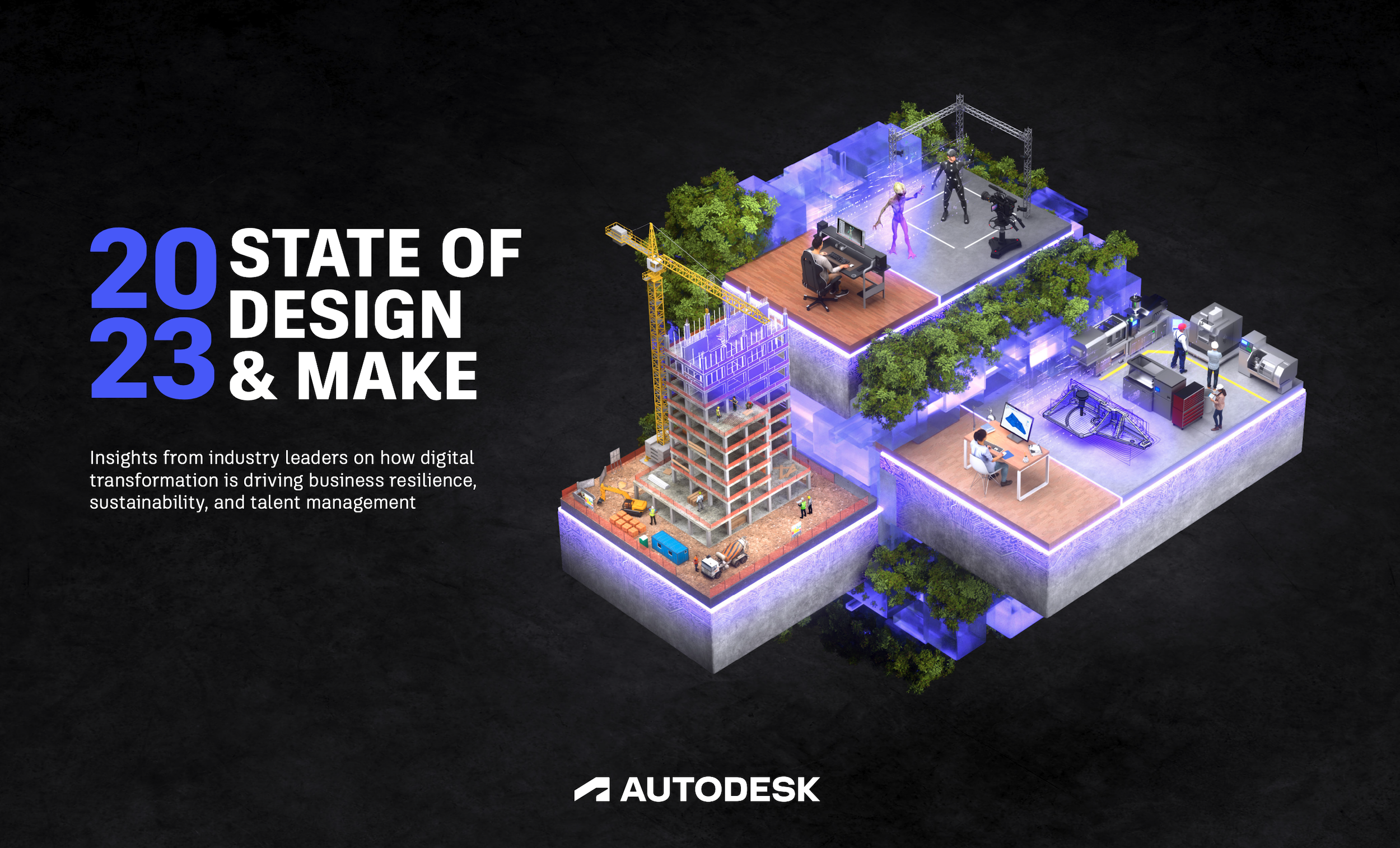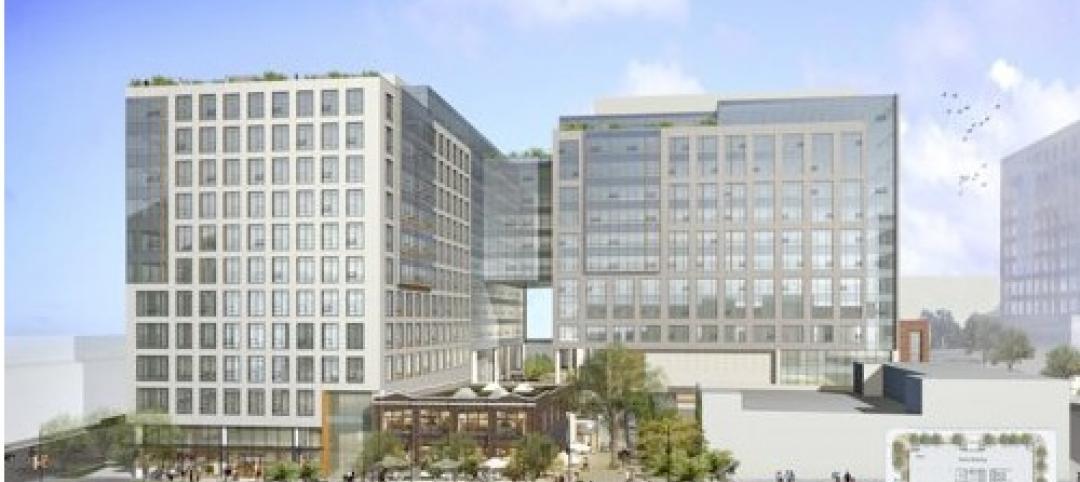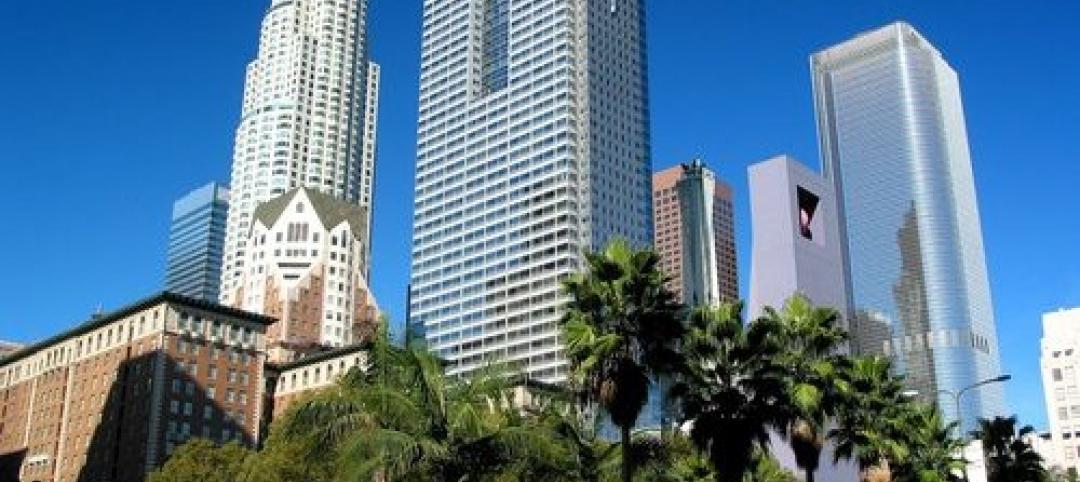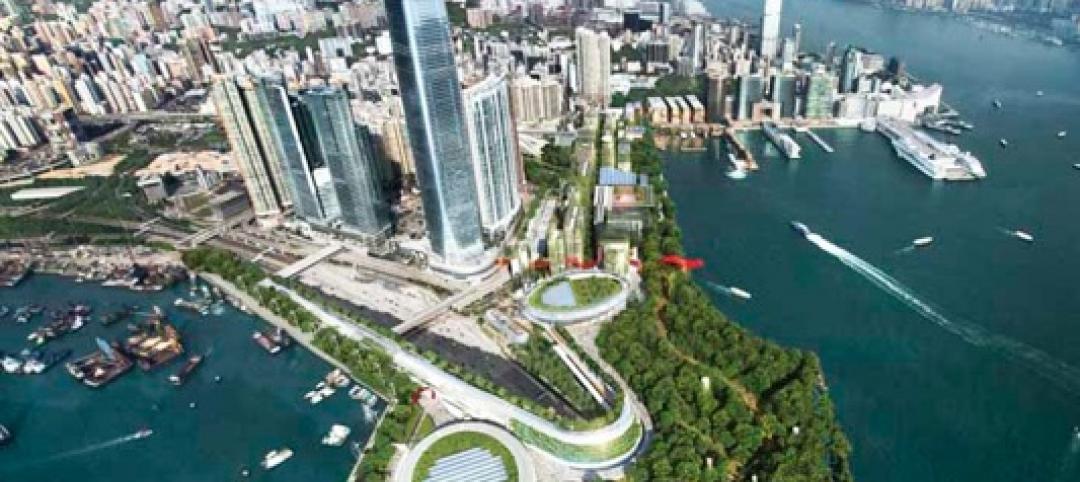A recent study, 2023 State of Design & Make by software developer Autodesk, contains some interesting takeaways for the design and construction industry.
Respondents to a survey of industry leaders from the architecture, engineering, construction, product design, manufacturing, and entertainment spheres strongly support the idea that improving their organization’s sustainability practices is good for business. Some 80% of respondents say stellar sustainability policies and practices strengthen their organization’s reputation and help in the war for talent.
“Sustainability attracts talent,” says Fiona Short, principal and architect at Warren and Mahoney, a multidisciplinary architectural practice, in a post on the Autodesk web site. “You want the right people to come and want to work for you, and you want to be a company that people are proud to work for. A focus on sustainability helps you to get the best out of people because they’re passionate and their work aligns with their values.”
The survey also found evidence to support the notion that digitally mature companies have a distinct advantage over peers who lag in adopting technology such as cloud computing. Many companies believe a robust digital platform that enables remote work will be a key competitive advantage. And the respondents say the performance gap between digitally adept firms and laggards is getting wider.
“If there is one overarching takeaway from the survey data and interviews, it’s this: success today and tomorrow depends on our ability to transform how we work, and digital tools will help us respond,” the Autodesk post says. “Modern, trusted design and make platforms allow people to create better, faster, more affordably and sustainably, by making data more accessible and extensible, and collaboration more seamless across functions, geographies, and industries.”
Related Stories
| Mar 29, 2011
City's design, transit system can ease gas costs
Some cities in the U.S. are better positioned to deal with rising gas prices than others because of their design and transit systems, according to CEOs for Cities, a Chicago-based nonprofit that works to build stronger cities. The key factor: whether residents have to drive everywhere, or have other options.
| Mar 29, 2011
Read up on Amazon.com's new green HQ
Phase IV of Amazon’s new headquarters in Seattle is nearly complete. The company has built 10 of the 11 buildings planned for its new campus in the South Lake Union neighborhood, and is on-track for a 2013 grand opening.
| Mar 22, 2011
China releases new guidelines on renewable energy architecture
Earlier this month, the Ministry of Finance and Ministry of Housing and Urban-Rural Development published a circular on renewable energy architecture, stressing broader reach and improved implementation at all levels of government. Of significance: achieving a renewable energy consumption of 20% by 2020; increasing renewable construction to 2.5 billion square meters by the end of 2015; increasing development of green construction and conservation projects and providing subsidies for green city projects.
| Mar 22, 2011
Cities with the most energy efficient buildings: L.A., Houston, Detroit, Dallas
The United States Environmental Protection Agency released its annual list of the top 10 American cities with the most energy efficient buildings—in this case, commercial buildings that have earned an Energy Star rating signifying they consume 35% less energy and release 35% less carbon dioxide than average buildings—and for the third year running, Los Angeles snagged the No. 1 spot.
| Mar 21, 2011
Environmental Protection Agency says D.C. is No. 1 in green
Less than a month after the U.S. Green Building Council gave D.C. top honors for green building, the Environmental Protection Agency has named the District the top green city. The EPA names the District the nation's
| Mar 18, 2011
ESD announces senior management changes
Environmental Systems Design, Inc., an international leader in the design of high performance building systems, announced senior management changes that include Raj Gupta (a member of BD+C's editorial advisory board) becoming the firm’s chief executive officer, replacing Hem Gupta, who remains chairman, and Kurt Karnatz being named president.
| Mar 17, 2011
USGBC collaborates to develop LEED Demand Response Credit
Skipping Stone, Schneider Electric and Lawrence Berkeley National Laboratory announced today the formation of a committee tasked with enhancing the current Demand Response LEED Pilot Credit. The team will collaborate on enhancing the credit to enable commercial building owners and LEED green building projects to earn credits in LEED for enrolling in utility or wholesale market demand response programs.
| Mar 17, 2011
Carbon footprint of public sector buildings in England and Wales to be released
The energy usage of 40,146 public buildings—including schools, hospitals, and offices—in England and Wales is being released to the public.
| Mar 16, 2011
Foster + Partners to design carbon-neutral urban park for West Kowloon Cultural District in Hong Kong
Foster + Partners has been selected by the board of the West Kowloon Cultural District Authority to design a massive 56-acre urban park on a reclaimed harbor-front site in Hong Kong. Designed as a carbon-neutral development, “City Park” will seamlessly blend into existing streets while creating large expanses of green space and seventeen new cultural venues.
| Mar 16, 2011
CALGreen v. LEED: How does California's new green building code compare to LEED?
The California Green Building Standards Code (CALGreen), the country’s first statewide green building code, seeks to establish minimum green building standards for the majority of residential and commercial new construction projects across California. As the requirements of CALGreen take effect this year, many wonder how the new code compares with other established green building standards, such as the U.S. Green Building Council’s LEED rating system. Let’s review…










